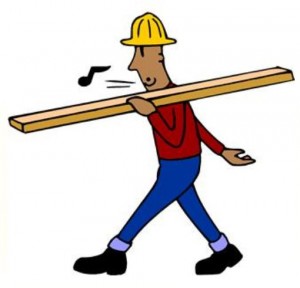I would like to take a moment to point out that, as you might expect, whether buying or renting makes more sense for you depends on a number of individual factors, including your local housing market. Here are some of the other points ...
- Tax deduction: This infographic didn’t figure in the fact that you can deduct your mortgage interest from your taxes. This is an itemized deduction that can lower your taxable income. Realize, though, that your interest payment goes down as the years progress, so the benefit you get from this diminishes. Property taxes can also be deducted on your tax return, and that can be a benefit of homeownership.
- Appreciation: Your home may not always appreciate in value. Indeed, a recession can set you back a long way on the path to appreciation. Whether your home truly appreciates in value depends a great deal on your local market.
- Home improvements: It’s important to note that even though home improvements can add value to your home, it is not an increase that equals 100% of what you spent. If you spend $1,000 on home improvements, your home may only increase in value by $700 or $800. Rarely do improvements add to the value of your home to the amount you spent on them.
- PMI: This infographic leaves off PMI. If you don’t put 20% down, you have to pay for private mortgage insurance, and that adds another cost to home ownership.
- Rental utilities: Unfortunately, the infographic fails to take into account that many renters have to pay their utilities. This is a cost of renting that needs to be considered, as does the difference between how much utilities will cost in your new home.
- Investing in something else: If you can rent for much less than a mortgage, it is possible to the difference into another investment. Indeed, since by the time you pay interest and pay for increased utilities and maintenance on a home, it is possible that you will not actually, dollar for dollar, break even on your home — even if it does appreciate in value. Some maintain that you are better off investing your money in bonds, index funds or something else likely to offer better returns.

































